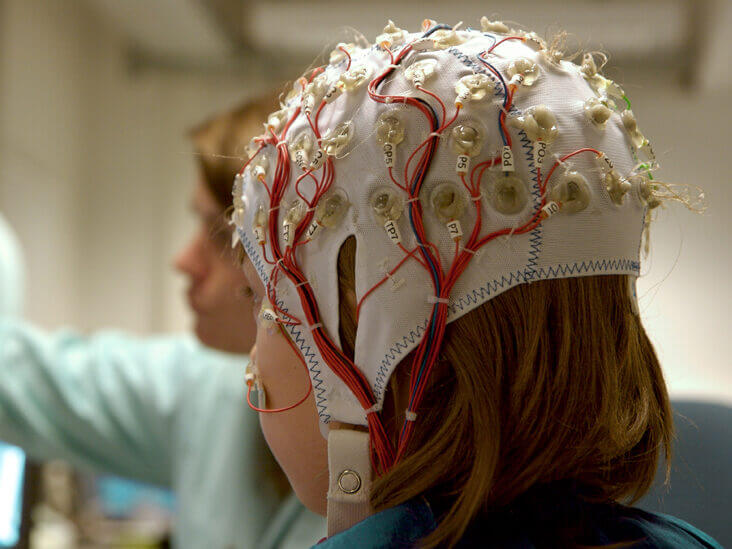A neurologist is a medical doctor who specializes in the diagnosis and treatment of disorders of the nervous system. This includes the brain, spinal cord, and peripheral nerves. Neurologists may also be involved in research. There are many different types of disorders that a neurologist may treat, such as Alzheimer’s disease, Parkinson’s disease, multiple sclerosis, stroke, epilepsy, and migraine headaches. Treatment may include medication, surgery, or rehabilitation. If you or someone you know has been experiencing symptoms that may be related to a disorder of the nervous system, it is important to see a neurologist for an accurate diagnosis and proper treatment.
What is a neurologist?
A neurologist is a medical doctor who specializes in diagnosing and treating disorders of the nervous system, which includes the brain and spinal cord. Neurologists use a variety of diagnostic tools, including neuroimaging (e.g., MRI and CT scans), to look for abnormalities in the brain and nervous system. They also use neuropsychological testing to assess cognitive function.
In addition to diagnosing and treating conditions, neurologists also play an important role in research. By better understanding how the nervous system works, neurologists can develop new treatments for conditions that currently have no cure, such as Alzheimer’s disease and Parkinson’s disease.
What do neurologists treat?
A neurologist is a physician who specializes in the diagnosis and treatment of disorders of the nervous system. The nervous system includes the brain, spinal cord, and nerves. The best neurologist in Delhi can provide care for people with conditions such as Alzheimer’s disease, stroke, epilepsy, multiple sclerosis, Parkinson’s disease, and head injuries.
Some neurologists focus on specific areas of the nervous system. For example, a neuro-oncologist treats tumors of the nervous system, while a neuromuscular specialist focuses on diseases that affect the muscles and nerves.
What are the different types of neurologists?
There are many different types of neurologists, each specializing in a specific area of the nervous system. Here are some of the most common types:
-General neurologists: General neurologists treat all disorders of the nervous system.
-Epileptologists: Epileptologists specialize in the diagnosis and treatment of epilepsy.
-Movement disorders specialists: Movement disorders specialists treat patients with conditions such as Parkinson’s disease and dystonia.
-Neuromuscular specialists: Neuromuscular specialists treat patients with disorders of the muscles and nerves, such as ALS and myasthenia gravis.
– headache specialists: Headache specialists diagnose and treat patients with all types of headaches, including migraines.
How do I become a neurologist?
To become a neurologist, you must first complete an undergraduate degree in a relevant field such as biology or pre-med. After completing your undergraduate degree, you must then attend medical school and complete a 4-year residency in neurology. Once you have completed your residency, you can then choose to pursue a fellowship in a subspecialty area of neurology such as neuroimaging or neurophysiology.
What are the benefits of seeing a neurologist?
There are many benefits to seeing a neurologist. A neurologist can help you with a wide variety of neurological conditions and disorders, including Alzheimer’s disease, epilepsy, migraines, multiple sclerosis, Parkinson’s disease, and stroke. A neurologist can also provide you with information about your risk factors for these conditions and how to best manage them.
Are there any risks associated with seeing a neurologist?
Yes, there are some risks associated with seeing a neurologist. These risks include:
-You may be misdiagnosed: While neurologists are experts in their field, they can still make mistakes. This could lead to you being prescribed the wrong medication or undergoing unnecessary tests.
-You may experience side effects from medication: Any time you take medication, there is a risk of experiencing side effects. These side effects can range from mild (such as a headache) to severe (such as an allergic reaction).
-You may have a procedure that has risks: Some procedures used to diagnose or treat neurological conditions carry a risk of complications. For example, a lumbar puncture (spinal tap) carries a small risk of bleeding or infection.
Overall, the benefits of seeing a neurologist usually outweigh the risks. However, it is important to be aware of the potential risks before making an appointment.
Conclusion
A neurologist is a medical doctor who specializes in the diagnosis and treatment of disorders of the nervous system. Neurologists use a variety of tests and procedures to diagnose and treat conditions that affect the brain, spinal cord, and nerves. Common conditions that neurologists treat include Alzheimer’s disease, Parkinson’s disease, stroke, seizures, multiple sclerosis, and migraine headaches.
Read More Blogs:




